#Durham Writer
Text
1893 in Durham
The year is 1893 in Durham, North Carolina. Julian Shakespeare Carr is the president of the William T. Blackwell Company. This company, with its playful bull painted on the sides of buildings all over the United States, has dominated the industry since the early 1870’s.
But there is shift in the winds. Just across the street, the W. Duke Sons & Co. has found a way to stomp on the bull and put it…

View On WordPress
#Duke#Duke History#Durham#Durham Author#Durham Blog#Durham History#Durham North Carolina#Durham Writer#North Carolina History#Tobacco History#Tobacco Industry
0 notes
Text
I love being a writer who can't express her own emotions in proper ways *sarcastic*
Like, the only way I can describe my emotions for when something happens is keyboard smash.
Ending of Good Omens and OFMD- sad gay keyboard smash
The ending of Maurice and Season 1 of Heartstopper- Happy gay keyboard smash
Any scene with Ben in Heartstopper- angry gay keyboard smash
#good omens#aziraphale#crowley#ao3 fanfic#ao3 writer#fanfiction#archive of our own#heartstopper#our flag means death#nick nelson#charlie spring#ed teach#stede bonnet#maurice 1987#maurice#maurice hall#alec scudder#clive durham#writers#writing#creative writing#keyboard smash#i cant express emotions#emotions#gay#lesbian#lgbtqia#lgbtq
42 notes
·
View notes
Text
About Maurice...
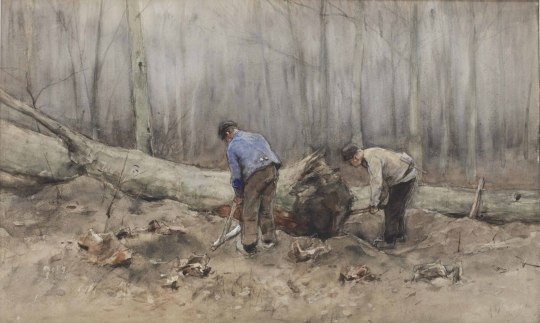
EM Forster's novel free pdf
Radio dramatisation
Merchant Ivory movie original cut
With deleted scenes restored
Soundtrack
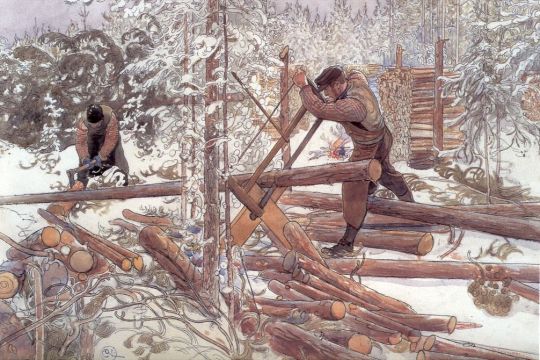
My Maurice fic AO3 angleshades
I don't take questions but rec @expo63 on all things Maurice

Images -
The Woodcutters, Anton Mauve; Woodcutters in the Forest, Carl Larsson; Lighting the Fire, unknown, pm for credit
Header images -
The Woodcutters, James Hamilton Mackenzie; publicity still, Merchant Ivory Productions
#maurice#maurice 1987#archive of our own#em forster#fanfic#ao3 fanfic#ao3 author#ao3 writer#ao3fic#ao3#ao3 link#maurice hall#clive durham#alec scudder#e.m. forster#happy ending
35 notes
·
View notes
Text
The Support Our #creatives® Clubhouse Room - September 18, 2023 - Dr. Tercola Durham
The Support Our #creatives® Clubhouse Room - September 18, 2023 - Dr. Tercola Durham
#Clubhouse #SupportOurHashtagCreatives #DrTercolaDurham #actor #writer #producer #TMDProductions
Mon. Sept. 18 at 8pmET on the **Clubhouse App**. The Support Our #creatives® Clubhouse room. Special guest Dr. Tercola Durham, actor, writer, producer, and founder of TMD Productions. We will ask Dr. Tercola about her origination story, collaboration with other creators, locating funding resources, and the process of making a film. We will also discuss some of her past projects and future…

View On WordPress
0 notes
Note
Maybe i just joined the fandom space way later than everyone else, but i swear to god the WaCa fandom is only this up in arms about how "ugly" and "deformed" and "disgusting" Moonpaw is/will be as a result of incest because she is confirmed to be a chimera.
I never saw this same kind of behavior when Graystripes parents were mistakenly made siblings. Nor with Ashfur and Squirrelflight, even after the fandom pointed out that theyre half-uncle and niece. I didnt see it with Fernsong and Ivypool. I didnt see it with Birchfall and Whitewing. I didnt see it with Dewnose and Sorrelstripe.
"Maybe its because theyre first cousins?" But no, because Dustpelt and Ferncloud are uncle and niece, directly related to Robinwing.
I believe the fandom only cares about the fact the parents are related here because in their mind it gives them "an excuse" to be disgusting about her chimerism. With any other characters, it's just another instance of the writers being incompetent. With Moonpaw, "it's why she's so fucked up".
Yes, they hate her because she's a result of an incest, but I'm starting to become convinced they're only this vocal about it because of how she looks. They don't truly care she's inbred, they only care that they have "a good reason" to be ableist.
This being said as a victim of incestual abuse. Cousin and cousin, just like Thriftear and Bayshine.
Is this a bad take? Am I grasping at straws? Is this just an effect of avoiding the fandom for so long? SOS
You're not grasping at straws. I think you're right on the money, honestly.
Something a lot of people don't seem to understand is that a lot of bigotry is not overt. Ableists don't usually run around saying they want all disabled people to be thrown off cliffs (when they get to that point we're in SERIOUS danger), but they DO grab your wheelchair's handles, or speak over you when you're stuttering, or assume you're stupid or dangerous. It's usually implicit biases, and structural inequality.
This is why humor is so good at revealing these internal biases. You may not believe you're classist, you might have friends from Alabama, or Durham, or Wales, but what accent do you give your "stupid" character if you're telling a story? Why are the accents of "poor" regions associated with low intelligence?
So to bring it around-- why did we see the spike in "jokes" about "ugly inbreeds" for our very first character with a confirmed genetic condition?
I've been in and around this fandom since 2008, and I've NEVER seen another character get talked about like this. Mind you, Graystripe was the child of a sister and a brother for a LONG time, too, from 2009 to 2016 (maybe even later, I don't remember exactly when the modern tree was released). And no one did it with Bristlefrost, either, in spite of there being a pretty huge uproar about her parents being distantly related.
No one else. Just the chimera. "No wonder she looks like that" and "here she is with a hapsburg jaw" and "she'd be so slurs she'd be icky."
Characters without disability, no congenital conditions, nothing = "Ugh damn writers and their incompetence strikes again. God they need to get some fresh blood in here"
(moonpaw) = "EWW NO WONDER!! WHEN WILL THE GENE POOL BE BLEACHED"
There's also the incredible irony of the fact that like. moonpaw has a common tortie fur pattern and heterochromia. you don't even need to show an ableist an actual congenital condition, you can suggest a normal face is disabled and they will lose their minds. Bigotry rots your brain.
Also, just, as a closing note, as usual the bigot is incorrect. Chimerism and inbreeding have literally nothing to do with each other. There is no link between chimerism and inbreeding. they are once again confusing chimerism and mosaicism and trying to whine It's Just Biology because you told them their joke wasn't funny.
#mooncourse#And it really just is an excuse to be ableist I got anons calling me delusional from this btw#Also lots of implications that I'm not a victim of incest apparently. Thanks ill go tell my therapist#I'd rather it be me than someone who had it worse though#Some of the stories that were shared with me-- especially one that was a DM and I will not be sharing-- have actually brought me to tears
120 notes
·
View notes
Note
How accurate is the ‘medieval peasants worked less then we do today’ statement? I looked it up because I find it very hard to believe, but had trouble making sense of it since history is not my strong point.
The answer to this is complicated, and represents a lot of (indeed, often erroneous) assumptions about past and present alike. Either the past is presented as a terrible place where everyone was miserable and dirty and assaulted all the time, or as an essentially more idyllic and pastoral place where people didn't have to contend with capitalism, credit scores, minimum wages, underpaid work, and all the other onerous apparatus of the modern economic system. Of course, neither the excessively bad or the excessively good version is true, and usually reveals more about the point that the modern debate wants to make, rather than anything to do with history itself.
First, I would like to note that the whole "all non-king medieval people were peasants" stereotype likewise really grinds my gears, and it is often presented uncritically in claims of this type, clearly intended to draw a parallel between overworked medieval people and overworked modern people. Which is fine, but again, not entirely accurate. As should be obvious to anyone who thinks about it for two seconds, medieval society consisted of all kinds of people and all kinds of occupations, both skilled and unskilled. Like, who do y'all think built the cathedrals? A bunch of random grain harvesters from nearby Podunkville? There were brute laborers who pushed wheelbarrows and hauled stones and etc, but there were also highly educated architects and engineers, who knew how to do things like make sure Durham Cathedral would minutely adjust over hundreds of years to the boggy ground it was built on, and not just fall down. There were master artisans, masons, glassworkers, sculptors, carpenters, etc etc. (See the creator of a recent "medieval" Netflix show claiming that medieval people had no use for art and me wanting to kick him like a football into the stratosphere). In towns, there were merchants, brewers, embroiderers, greengrocers, butchers, bakers, everything else you need to run a basic local economy. There were soldiers and mercenaries and other military occupations, which became increasingly professionalized throughout the medieval era and not just a matter of recruiting the local guys from down the road. There were priests and clerics and an extensive church bureaucracy. There were academics and professors and scholars and writers. Etc etc etc.
Anyway, the point is that when you're talking about medieval peasants, you're probably referring to the people who lived in largely rural or agrarian environments and made their living primarily from subsistence farming and animal husbandry for a landlord. Obviously, they did work hard in physically grueling occupations (though they were generally not malnourished and starving, as I have written about before, except in years of bad famine or crop failure, and then their wealthier employers would suffer too, because they all existed in the same material goods universe, whereas the rich and poor are millions of miles apart today). Their wages were often low, and even in the absolute worst of the Black Death’s first wave in 1349, King Edward III of England issued the Statute of Pleading that attempted to keep wages down and prevent peasants from negotiating for higher rates, even in the middle of a literal fucking apocalyptic plague and crushing labor shortage. (He was ultimately not successful). Widespread discontent with the exploitation of the peasantry, the crushing tax rates to fund pointless foreign wars, and other oh-hey-that-sounds-familiar problems led to the Peasants' Revolt in 1381, and the widespread popularity of the Lollards, a social and religious reform movement who criticised the static hierarchy and endemic inequality of medieval European society. So there were obviously some of the same problems as there are today, especially in regard to economic inequality and systemic oppression, and medieval peasants, far from being stupid sheep who just put their heads down and took it, were just as involved in trying to organise movements and protests to change it.
However, medieval peasants did not exist in global capitalism (obviously) and thus both their work and the reason for it was different. This was before the Protestant Ethic of the late 19th/early 20th century, that explicitly linked religious salvation with hard work in the capitalist system. Martin Luther bitched about indulgences so much because it was an accepted system to just pay the church something and be like "okay I'm good, I can kick back and not worry about it." (The medieval Catholic church had many, MANY problems, but the fact that Luther is so often presented as the "good guy" heroically saving these lazy dissolute people tells you all you need to know about how Protestant triumphalism informs Western historiography). In 1215, at the Fourth Lateran Council, Pope Innocent III had to issue an explicit degree to order people to go to church or take communion more than once a year, which he would not have had to do if they were all mindlessly devoted zealots who spent every waking moment there. Medieval people liked to sleep late and chill out on Sunday, just like modern people do now.
Obviously, religion was a more explicit and structured part of their lives than it generally is now, but sometimes the "medieval people worked less" argument is presented as the all-powerful and Machiavellian church craftily providing the people with a lot of public holidays so they didn't revolt against them. As noted, medieval people complained about and ignored and rebelled against the church anyway, and anyone who ever tells me that they were all uniform and brainwashed and always accepted the Catholic church's view on things needs to read one (1) book on the 13th century. Besides, the church just never had that level of total control over society anyway, and this presumes that everything they did was in deliberate bad faith solely to preserve their secular/social power -- which, while secular/social power was also often at stake, is likewise a wildly simplistic misreading of how things actually worked, and what the church actually wanted to do.
There were indeed a lot of public holidays, both religious (i.e. saints' days) and folk (Lammastide, the harvest, Celtic festivals, etc), where people weren't expected to work, and/or to go to church instead. As noted re: Pope Innocent and his struggles in this department, this was often not necessarily the case. There were also ordinary community holidays like house-raisings, weddings, christenings, Christmas, etc etc., where people could (and did) often have a good time for days. There were fairs, tournaments, carnivals, markets, and other opportunities for leisure or to attend entertainment events. So it certainly wasn't the case that peasants were always slaving away with no respite, and that if they weren't working, they were in church. They also didn't have to work for their entire lives; elderly peasants could retire and be supported on a portion of the overall estate yield, in medieval social security, and if this wasn't given to them, they could and did sue their landlords to get it. So yet again, medieval life was NOT just nothing but filth and misery and being worked until you dropped. People are people. They have lived as people in all ages and eras of the world. They have enjoyed themselves and worked and lived and died. We do need to examine the very real problems of the modern world, but I continue to hope, however vainly, that we don't need to keep relying on excessively distorted versions of the medieval world to do it.
514 notes
·
View notes
Text
Today in Christian History
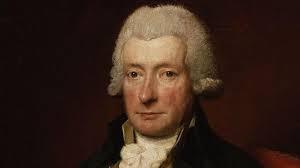
Today is Thursday, April 25th, 2024. It is the 116th day of the year in the Gregorian calendar; Because it is a leap year, 250 days remain until the end of the year.
62: Death of Mark the Gospel writer while imprisoned in Alexandria in the eighth year of Nero, according to Vetus martyrologium romanum (an old Roman collation of martyr accounts).
799: Pope Leo III is attacked, his eyes stabbed, and his tongue torn. He recovers and later crowns Charlemagne as emperor.
1449: The ineffectual Council of Basel ends.
1479: Death of Sylvester of Obnorsk, a Russian Orthodox hermit who had lived off roots and bark. Eventually he had established a monastery.
1564: John Calvin, reformer of Geneva, dictates his last will and testament to notary Peter Chenalat.
1595: Death from a fever in the convent of St. Onofrio of Italian poet Torquato Tasso. Ironically, he was supposed to receive a laurel from the pope on this day in recognition of his epic poems, among which Jerusalem Delivered had been the most acclaimed.
1735: Death at Epworth, England, of Samuel Wesley, curate, author, and father of Methodist revival leaders John and Charles Wesley.
1800: Death at East Dereham, Norfolk, England, of English poet William Cowper (pictured above). Despite lifelong depression, he had produced enduring hymns, including, “Oh For a Closer Walk with God” and “There is a Fountain Filled with Blood.” Dementia had led him to believe he was damned.
1879: Consecration of J. B. Lightfoot as Bishop of Durham. A renowned English New Testament scholar, he had left Cambridge and a life of scholarship to devote the remaining ten years of his life to church administration.
1889: Death at Mt. Pleasant, Michigan, of Anzentia Igene Perry Chapman. A member of the Free Methodist Church, she wrote a number of hymns, including, “Thou Shalt Rest at Eve,” and “We’ll Never Say Goodbye.”
1917: Ordination of Paul Sasaki as a priest in the Anglican Church in Japan. He will become bishop of Nippon Sei Ko Kei (an independent church organization within the Anglican Communion), and suffer imprisonment for his refusal to bring Nippon Sei Ko Kei under the authority of a government-ordered church coalition.
14 notes
·
View notes
Text


On this day, remembering James Baldwin
Happy Heavenly Birthday to the profound, brilliant author and activist Mr. James Arthur Baldwin!


James Arthur Baldwin was a novelist, essayist, playwright, poet, and social critic.
Baldwin's essays, such as the collection Notes of a Native Son (1955), explore palpable yet unspoken intricacies of racial, sexual, and class distinctions in Western societies, most notably in mid-20th-century America, and their inevitable if unnameable tensions.
Some Baldwin essays are book-length, for instance The Fire Next Time (1963), No Name in the Street (1972), and The Devil Finds Work (1976).
His novels and plays fictionalize fundamental personal questions and dilemmas amid complex social and psychological pressures thwarting the equitable integration of not only blacks, but also gay men—depicting as well some internalized impediments to such individuals' quest for acceptance—namely in his second novel, Giovanni's Room (1956), written well before gay equality was widely espoused in America.
Baldwin's best-known novel is his first, Go Tell It on the Mountain (1953).
SOCIAL & POLITICAL ACTIVISM:
He wrote about the movement, Baldwin aligned himself with the ideals of the Congress of Equality (CORE) and the Student Nonviolent Coordinating Committee(SNCC). In 1963 he conducted a lecture tour of the South for CORE, traveling to locations like Durham and Greensboro, North Carolina and New Orleans, Louisiana. During the tour, he lectured to students, white liberals, and anyone else listening about his racial ideology, an ideological position between the "muscular approach" of Malcolm X and the nonviolent program of Martin Luther King Jr..
By the Spring of 1963, Baldwin had become so much a spokesman for the Civil Rights Movement that for its May 17 issue on the turmoil in Birmingham, Alabama, Time magazine put James Baldwin on the cover. "There is not another writer," said Time, "who expresses with such poignancy and abrasiveness the dark realities of the racial ferment in North and South."
48 notes
·
View notes
Text
THIS DAY IN GAY HISTORY
based on: The White Crane Institute's 'Gay Wisdom', Gay Birthdays, Gay For Today, Famous GLBT, glbt-Gay Encylopedia, Today in Gay History, Wikipedia, and more … May 23


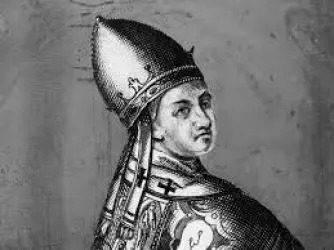
c.1012 – Benedict IX (d.circa 1056), born in Rome as Theophylactus of Tusculum, was Pope on three occasions between 1032 and 1048. Aged approximately 20 at his first election, he is one of the youngest popes in history. Unqualified by his youth, his bringing up, his depravity, Benedict IX became one of the very few really disreputable popes. He is the only man to have been Pope on more than one occasion, the only man ever to have sold the papacy, and the first verifiable person to have resigned the papacy. He was also the first pope known to be primarily homosexual.
Benedict's pontificate, which was known for homosexual orgies in the Lateran Palace, "turned the Vatican into a male brothel" and was so scandalous that he was deposed, not once but twice. Benedict was deposed in 1045, but then reinstated, only to be deposed again. He disappeared into such deep obscurity that his actual date of death is unknown.
According to one report, which it may be hoped is true, Benedict retired to the abbey of Grottaferrata, resigned all claim to the papacy, and spent his last years as a penitent.

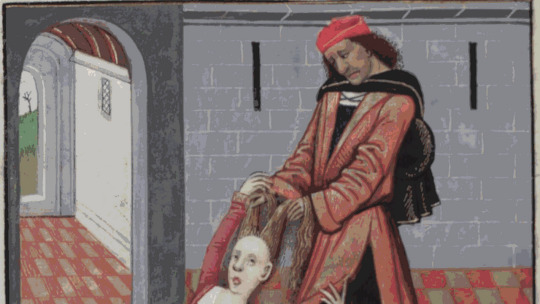
1791 – France creates a new law system where rape is the only punishable sex crime. Sodomy, a former capital offense, is not included, leading France to be the first country to decriminalize sex between men.

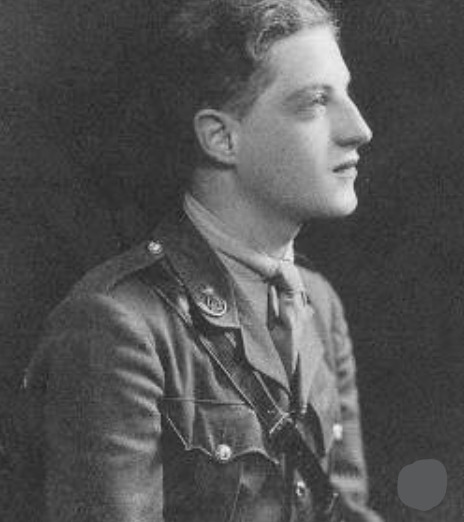
c.1897 – Gabriel Atkin was a British artist. Born William Park Atkin, Gabriel Atkin was born in South Shields, Durham, the son of a builder (d.1937). Before the First World War he showed promise as a water-colourist and he studied briefly at Armstrong College in Newcastle with tutor Richard George Hatton.
With the start of the war he enlisted and in the summer of 1915 he was sent to Cambridge for officer training. While there he got to know the circle of gay men including the academics Edward Dent and A. T. 'Theo' Bartholomew. Although Atkin could be charming he was also prone to drunkenness and riotous behaviour, which caused those around him embarrassment and anguish. They engaged in some matchmaking and encouraged Siegfried Sassoon to meet Atkin. The meeting took place when Siegfried Sassoon travelled to Margate, where Gabriel Atkin was staying. The meeting went well and they immediately fell for each other. They spent that Christmas together at Siegfried Sassoon's family home at Weirleigh and at Robert Ross's rooms in Half Moon Street in London. Gabriel Atkin almost certainly provided Siegfried Sassoon with his first sexual encounter.
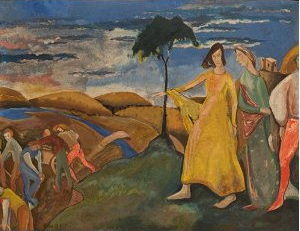
a Gabriel Atkin watercolor
After this Siegfried Sassoon became a minor literary celebrity and got to know a number of well-known people. This meant that Gabriel Atkin also got to know them. Sacheverell Sitwell introduced Siegfried Sassoon to Ronald Firbank. Although Siegfried Sassoon did not find Ronald Firbank's work appealing they met a couple more times mainly because Atkin was a devotee. They had also got to know some of the Bloomsbury Set including Lytton Strachey, Mark Gertler, Duncan Grant, and John Maynard Keynes.
Gabriel Atkin had a show at the London Salon in 1919. In 1920 Atkin was living in a studio flat in Tite Street in Chelsea, London, and Siegfried Sassoon gave him an allowance of £300 so that he could continue painting. They began to see much less of each other, although Siegfried Sassoon continued to send money for some years.
Gabriel Atkin travelled to France and for a while was a male prostitute in Lyon and then the south of France.
In 1928 he met the minor writer Mary Butts, and they married in London in 1930. For the first two years of their marriage they lived in London and Newcastle. They then settled in Sennen in Cornwall and bought a cottage that they called Tebel Vos. They both relied on drink and drugs. The marriage was troubled and Gabriel Atkin left in 1934. By 1937 they were both dead.


1914 – Leo Lerman (d.1994) was an American writer and editor who worked for Condé Nast Publications for more than 50 years. Lerman also wrote for the New York Herald Tribune, Harper's Bazaar, Dance Magazine, and Playbill.
Lerman was born in New York City, the son of Jewish immigrants from Eastern Europe. He grew up in East Harlem and Queens, New York. As a child, he accompanied his house-painter grandfather and father on various jobs in upper-class homes. He was openly gay.
From earliest adolescence, he knew he was homosexual and that he was highly sensual - inclinations that did not remotely worry his doting, manipulative mother. As a teenager, he overheard "Momma" tell one of his aunts on the phone, "He will never get married. So what if he's a 'mother's boy'?" she added. "I'm his mother."
As a struggling writer, he leavened his spirits by giving parties for the beau monde and the haut monde, first in a shabby-chic walk-up he shared with his first love, the painter Richard Hunter; later in a brownstone on Lexington Avenue, where he lived for 20 years with Foy; and then at a sprawling duplex in the Osborne on 57th Street, where they moved in 1967.
Lerman's parties attracted everyone from magazine editors and writers to Maria Callas, Anaïs Nin, Margot Fonteyn, Frederick Ashton, Cecil Beaton, Diana and Lionel Trilling, Aaron Copland, Gloria Steinem and Leonard Bernstein.After Lerman died in 1994, not long after his 80th birthday, his lifelong love and partner, the artist Gray Foy, discovered hundreds of notebooks secreted in a warehouse, file drawers and even a trunk under the piano he'd converted to a desk, "stretching from the months before his first Vogue assignment (in 1941) to a year before his death."
Stephen Pascal, Lerman's assistant at Vogue, Vanity Fair and Condé Nast for more than 12 years, and later, his amanuensis, took on the daunting task of editing this material.
Selections from his journals, roughly 10 percent of the writings, were published in 2007 as The Grand Surprise: The Journals of Leo Lerman. Meant to be the source material for a novel he never wrote, the journals detail his social and business interactions with a remarkable number of famous and important people who passed through the New York arts scene from the 1940s to the '90s.
Among the memories:
He once flatly rejected a "Narcissus naked" Yul Brynner, who was begging him to sleep with him and pathetically murmuring, "Why won't you? Why won't you?"
The first, and probably only, woman Lerman ever saw naked was his great friend Marlene Dietrich, at a time when she was having what he described in a diary entry as an "intense affair with Yul." According to Lerman's lifelong love and partner, the artist Gray Foy, Dietrich had asked Lerman into her bath to demonstrate "the female anatomy." Apparently, Lerman took in the view with respectful attention, if not passion.


1920 – Harvard establishes a committee to investigate homosexual activity on campus. The tribunal becomes known as the Secret Court of 1920. Records of the tribunal are discovered in 2002. Many of those interrogated were never charged and have not been identified. In 2002, a researcher from The Crimson, the school's undergraduate daily newspaper, came across a box of files labeled "Secret Court" in the University Archives. After a protracted campaign on the part of the paper's staff, the university released five hundred documents relating to the Court's work. An article by Amit R. Paley in The Crimson's weekly magazine Fifteen Minutes reported the 1920 events on November 21, 2002.

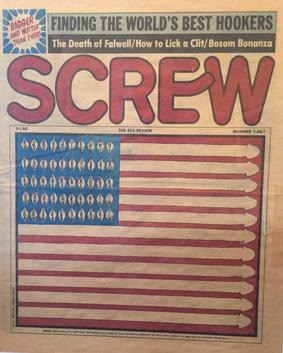
1969 – In this day’s issue of the American porno magazine Screw, a column appears by Jack Nichols and Lige Clarke using the term homophobia to refer to straight men’s fear that they might be gay. Screw is usually a straight man’s magazine.


1979 – Chris Morris is an activist who, aged 15, with Euan Sutherland, successfully challenged the British Government in the European Court of Human Rights and secured an equal age of consent for sexual activity between males. He went on to study psychology and work as a political speechwriter and consultant.
When male homosexuality was decriminalised in England and Wales in 1967, the age of consent was set at 21. It was lowered to 18 in 1994, but Morris and Sutherland took their case to the European Court to demand it be reduced further to 16, the same age as it is for heterosexuals. They invoked the European Convention on Human Rights, which guarantees the right to a private life and protection from discrimination.
Their case was originally backed by the gay rights group Stonewall and later Morris formed his own organisation, YouthSpeak, which was funded by Sir Ian McKellen. YouthSpeak sent delegations of teenagers to meet MPs and the media to tell their personal stories about how an unequal age of consent affected their lives. The group also projected a laser beam onto Big Ben demanding "16 for everyone" and delivered a 25,000-strong petition to new prime minister Tony Blair when he was elected in May 1997.
Opposition to the campaign was led by Conservative peer Baroness Young and the then Archbishop of Canterbury, George Carey, among others.
In July 1997, the European Court found that the existence of different ages of consent was discriminatory and that no valid grounds existed to justify that discrimination. They therefore found that the age of consent for homosexual acts should be lowered to 16.
In response to the court's findings, the then Home Secretary Jack Straw agreed with Sutherland and Morris that a Bill would be proposed to Parliament in the summer of 1998 to reduce the age of consent for homosexual acts to 16. After two defeats in the House of Lords, the law was eventually changed as part of the Sexual Offences (Amendment) Act 2000, in November 2000.
In 1998, Morris became a member of OutRage! and in 1999 he founded and became editor of the gay rights magazine Outcast. Contributors included left-wing Mayor of London Ken Livingstone, Lib Dem leader Charles Kennedy, Foreign Office minister Ben Bradshaw, Anti-Gay author Mark Simpson and veteran activist Peter Tatchell. The magazine satirised and was critical of many gay activists and businesses and Morris was criticised for "biting the hand that fed him" during his age of consent campaign.
With OutRage!, he broke into Lambeth Palace and confronted the then Archbishop of Canterbury, George Carey, about his opposition to an equal age of consent. With Peter Tatchell and two others, he attempted a citizen's arrest on President Robert Mugabe to publicise Mugabe's alleged role in the torture of two opposition journalists (Mark Chavunduka and Ray Choto) in Zimbabwe. He was himself arrested but later released without charge.


2013 – The Boy Scouts of America's national council votes to remove the ban against gay scouts, causing conflict with some faith-based supporters. The policy for adult leaders remained in place until July 27, 2015.


12 notes
·
View notes
Text
2023 Reading Challenge. Re-imagined Classic: Alec by William di Canzio
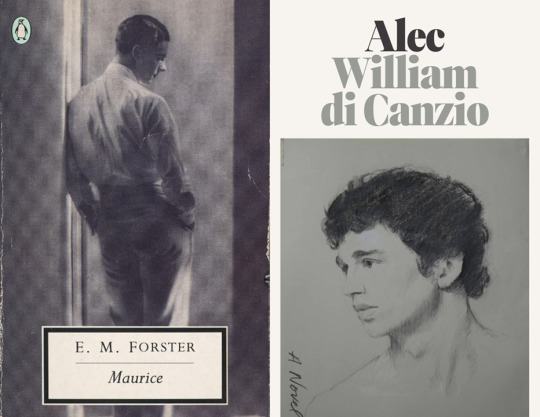
Spoilers for both Maurice by E. M. Forster and Alec by William di Canzio.
For this category I considered talking about one of the many re-writings or sequels to The Secret Garden that I’m planning on reading for this blog, but decided against it, as I consider that reading project to be separate from this one, so instead I chose this book, Alec by William di Canzio.
Alec is a re-telling/sequel to E. M. Forster’s posthumously published novel Maurice, and follows it’s titular character Alec Scudder (the love interest in Maurice), from childhood, through the events of Forster’s novel and beyond, to the early 1920s.
Before I really get into the book and my thoughts about it, I want to first talk about the skin that I have in the game here, so to speak. Maurice is a book that I hold very dear, I first read it when I was thirteen years old, at which point I was already aware that I was queer but had not yet told anybody. Maurice, to me, was kind of a revolution, here was a character whose journey in accepting his sexuality and finding love, despite the times in which he lived (the novel takes place between 1909-1913), was something that affected me in an extremely profound way, and ultimately helped me gain the courage to come out myself. It’s a book that I have re-read several times, I also adore the 1987 film adaptation (here’s a link to where you can watch it for free on YouTube) and I even saw a stage version of the novel several years ago at the Above the Stag Theatre (an LGBT theatre in London, which has sadly since closed down). Though I do like Maurice a lot, I don’t necessarily think that it is Forster’s greatest work (I think that would probably be Howards End) but I do like the book a lot, and I generally like E. M. Forster a lot as a writer, I enjoy his novels and the various Merchant-Ivory adaptations (which you can probably tell from looking at my blog).
My attachment to the book that Alec is adapting, may seem that I’m setting the book up to fail, and I’m really not doing that, I was rooting for this book from the second I knew of its existence, and I wasn’t going to buy it and read it just to hate on it. As somebody who has been known to enjoy a spot of fanfiction now and then and who is extremely interested in adaptation and transformative works, I was stoked to read this book, especially since Alec is my favourite character in Maurice.
I explained the basic premise earlier, but I’ll go into a bit more detail now. The novel Maurice is about Maurice Hall, an upper-middle class young man living in England in the early 1910s (prior to the First World War). While studying at Cambridge University, Maurice falls in love with his friend Clive Durham, thus coming to terms with his homosexuality. The love between him and Clive is mutual but strained, Clive (who is part of the gentry) insists that they must repress their sexual desires, that their relationship should be purely romantic, not sexual. The men are together for several years, before Clive ultimately breaks things off in order to get married, leaving Maurice alone and heartbroken, though they continue to be friends. On a visit to Clive’s country estate, Maurice meets Alec Scudder, the working-class gamekeeper, Maurice initially thinks very little of him, though the relationship eventually blossoms into a passionate romance. However, their relationship gets off to a rocky start, with mistrust and miscommunication on both sides. They are eventually able to resolve these issues, realise their love for one another, and decide to forge a life together, despite the societal obstacles, with Maurice deciding to definitively put an end to his friendship with Clive. The novel ends on an uncertain but optimistic note, with the lovers facing their future together.
Alec is told in nine sections, the first section being Alec’s life from birth to aged 18 and depicts his family life in Dorset and coming to terms with his own sexuality, and the circumstances that led him to being employed as Clive’s gamekeeper. The second section depicts the events of Maurice from the perspective of Alec, how the couple came to meet and fall in love, with large sections that are copied verbatim from the original novel (which was done with permission from Forster’s estate). The following seven sections depict the next six years, following the couple through their early years together, the outbreak and duration of the First World War -- during which time the couple is kept apart – to the couple’s reunion and continuation of their life together, now joined by Maurice’s sister and her newborn daughter.
Reading Alec you do get the impression that William di Canzio cares deeply about this story, and has infused some of his own experiences as a gay man into the narrative, particularly with regard to Alec’s self-awareness and lack of shame about his own sexuality prior to his interactions with Maurice – that is to say, Alec doesn’t hate himself for his own desires, which was something that I found refreshing. Speaking of desire, I was not expecting this book to be as sexually explicit as it was. This isn’t a criticism necessarily, it just wasn’t something that I was expecting. It may even be a strength of the book, as the current climate with regards to sexuality and sexual expression is so different to what it was in Forster’s day, that this book has the opportunity to be much more forthcoming about sex and desire than Forster could have ever been.
One element to this book that I found especially interesting is the inclusion of Forster as a character within the story, as well as other historical figures, namely socialist philosopher and gay rights activist Edward Carpenter (1844–1929) and his partner George Merrill, who were friends of Forster, and upon whom the characters Maurice and Alec are partially based. Granted, it is never explicitly acknowledged within the text that these characters are the people that they share their first names with, however, anybody with even a basic understanding of the biographies of these three men would easily be able to identify them. Initially, I thought that the inclusion of these characters was something of a gimmick, but I warmed to it as the story went on, as they act somewhat as mentors to Maurice and Alec, teaching them about life and love, giving them language and models about how to live as gay men at that time in history.
My review so far seems like I really loved this book, and that isn’t necessarily the case. I think it’s pretty good, though not perfect. I liked it well enough that I read the whole thing reasonably quickly, though there were a number of things that I didn’t like so much. di Canzio’s writing style and narrative voice is not nearly as beautiful as Forster’s, who is able to make even the most mundane moments beautiful and profound (take the moment in Maurice where Alec takes Maurice’s hand for the first time as a prime example of this), but di Canzio isn’t a bad writer either, his work is very readable, but comparison to the original author is unavoidable when adapting/re-telling another book.
One element of the book that I liked in theory, but not so much in practice is the Kitty sub-plot. Kitty is Maurice’s sister, and is a pretty minor character in Forster’s novel – though the unpublished epilogue to Maurice does imply that Kitty may be the lesbian counterpart to her gay brother. In Alec, Kitty was a nurse during the war, fell in love with an Indian Army Officer and became pregnant out of wedlock, thus making her something of a social outsider like her brother. Maurice and Alec take Kitty in, deciding to raise her mixed-race daughter together as a family, something that greatly upsets Maurice’s mother, who rejects both of her children because of this. As a plot element, I like this a lot in theory, unfortunately not so much in practice, as this plot thread is introduced on page 298 of a 337 page book, with Maurice’s mother and sisters having barely been mentioned and never seen before earlier in the novel, and thus this whole element of the story feels incredibly rushed and poorly integrated into the overall story, which is a shame, because I think it could have been really interesting. If I had been Mr di Canzio’s editor, I would have sent the manuscript back to him with a big note in red ‘INTEGRATE THIS INTO THE STORY EARLIER AND BETTER’.
I said earlier, in my summary of Maurice, that the novel ends on an uncertain but optimistic note, with the lovers facing their future together, and this novel ends in much the same way, with Maurice, Alec, Kitty and her daughter deciding to emigrate to New York (presumably because William di Canzio is American). I didn’t really like this ending very much; it seems to go against Forster’s intentions for his characters. Let me explain: a major theme in Maurice is nature and the desire for a rural life that is apart from society (what Forster calls ‘the Greenwood’), indeed in the unpublished epilogue, we see that this desire has been fulfilled, with Maurice and Alec being shown to be living in a cottage and working as woodcutters. Having Maurice and Alec move to New York seems a little out of left field to me, and not very in-keeping with the themes of the original novel, particularly since the idea of America being the ‘land of opportunity’ for LGBT people and POC, is not particularly reflective of the historical record, particularly in the 1920s.
If you haven’t read Maurice, then I don’t really know what you would get out of Alec, just as a standalone story. It works, I think, as a supplementary piece to Maurice, though does not achieve the same tenderness, intimacy, and beauty of its predecessor.
Now go read Maurice, if you haven’t!
86 notes
·
View notes
Text
History in the Present
Stepping back into history has been a journey unlike anything I have ever experienced. For the last two years I have made the thirty minute car ride to Duke University where the four hundred boxes of the Richard Harvey Wright archives are stored. Before entering the Rubenstein Library, I must walk past Duke Chapel, one of the most magnificent works of architecture in the country.
Before entering…

View On WordPress
#Duke#Duke University#Durham#Durham Author#Durham History#durham native#Durham Writer#north carolina author#North Carolina History#north carolina native#North Carolina Writer
0 notes
Text
get to know me!
tagged by @robo-dino-puppies uwu
last song: i am the sea (was looking for the limsa lominsa daytime music for a wint character sheet)
currently watching: im like 4 episodes into dr stone, waiting for frieren to go free on crunchyroll and/or dungeon meshi on blu ray, not much of an anime nerd but they caught my eye lol. also distractable podcast
three ships: uuuuhhh.. TheiaxDeryk, fitzsimmons, UriangerxMoenbryda (moen my beloved, i will avenge you)
favourite colour: purple!
currently consuming: ..air? idk i brushed my teeth and am lying in bed ready for sleepies
first ship: fitzsimmons, my sweet nerd blorbos im so sorry the writers tore you apart every season and made your traumas increasingly worse
birthplace: durham, england
current location: bed, england
relationship status: aroace, n/a
last movie: i uuuuhhhhhh..... i was in the living room briefly while my sister was watching the hobbit? does that count? i cant remember what i last watched start to finish... though wendigoon's uzimaki(?) video was like 2 hours long.... maybe that counts
currently working on: BEATING THE DANG SLAUGHTERSPINE IN BURNING SHORES RAAAAAA
tags for (if you want) @magefeathered @meatball-headache @krazykitsune @shivasdarknight @oneiroy and anyone else wanting to join in 👉👈
7 notes
·
View notes
Text
"decidedly intelligent"
- Clive describes Alec in the novel

In my fanfic sequel, Alec is already quite into history, he gets very into reading, and gives Clive homework lists, which Clive reads assiduously because it's good stuff (like Isherwood) and also he's scared Alec will tell him off. Maurice is content to stop pretending to be bookish and just fix stuff and talk about farm machinery with Clive's boyfriend.
cap@superfriendlyaviator-blog-blog
#fanfiction#fanfic#ao3 fanfic#ao3fic#ao3 author#ao3 writer#fic writing#maurice hall#clive durham#alec scudder#maurice#maurice 1987#em forster#dark academia#dark academic aesthetic
7 notes
·
View notes
Note
//Showrunner pick//
I’d like to see them choose a showrunner that has done a lot in the horror/thriller space like Kripke that can bring in more depth to create an elevated revival. Robbie was just too inexperienced and lacked overall storytelling experience for a full series. The others that have gone on to produce other series like Gamble, Carver, Edlund would be my choices IF my selection were previously connected to supernatural.
But it would be great if they chose a more experienced producer/screenwriter that’s done more in film than TV in this genre, and a revival of a tv series may interest them. People like Bobby Roe or Patrick Durham would be my pics.
I hope someone asks this question to J2 at an upcoming con. Jared has a few cons coming up!! Someone ask!
I was very hesitant about Kripke being showrunner despite Jensen's enthusiasm because Kripke wanted such a dark and bleak ending. His original ending was Sam going dark and Dean killing him, then them both jumping into the cage together.
While I love Gen V and The Boys, Kripke's love of shock and gore can be a bit off-putting and when he made the comment that Dean might vote for Trump, I feel like he has a different view of Dean.
Then something was said in a m&g that made me feel better about Kripke as showrunner, although my pick would be Yockey or Edlund as both are experienced at show running. I think someone can be a great writer, but bad at showrunning.
They might also pair one of their experienced showrunners from another show they've done with an experienced writer.
7 notes
·
View notes
Text

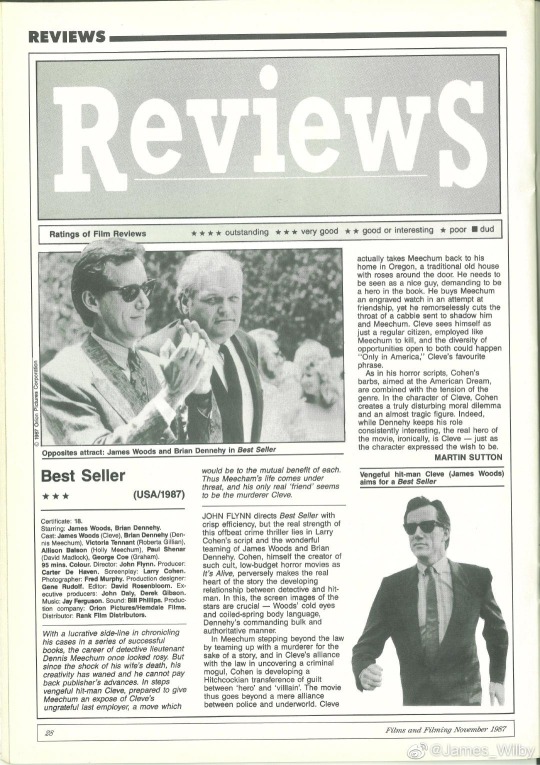
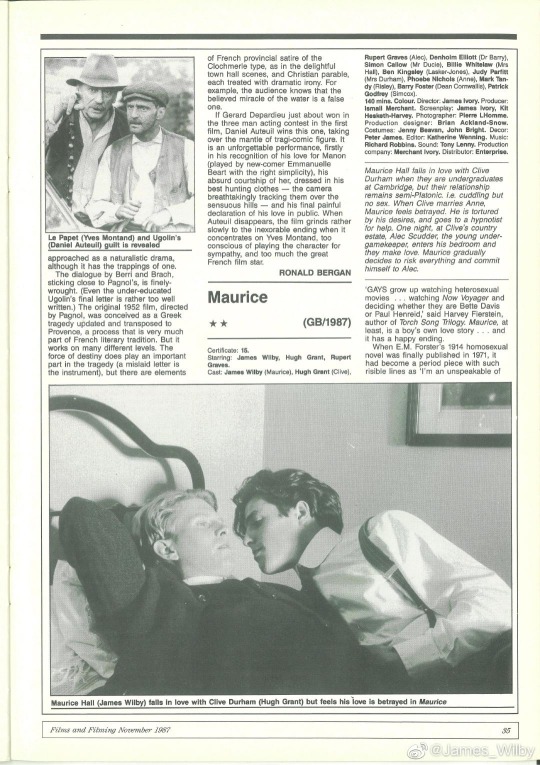

The November's Film and Filming in 1987.
Although the magazine selected Maurice as its cover, Maurice was only rated two stars in its Reviews colomn(4 stars: outstanding, 3 stars: very good, 2 stars: good or interesting, 1 star: poor, 0: dud) and was dissected by a critic named RONALD BERGAN, saying Maurice had become a period piece with such risible lines as I'm an unspeakable of the Oscar Wilde sort from the Eighties standpoint...and Ivory has been let down by his Jamesian (Forsterian?) lack of passion...
Maurice Hall falls in love with Clive Durham when they are undergraduates at Cambridge,but their relationship remains semi-Platonic. i.e. cuddling but no sex. When Clive marries Anne, Maurice feels betrayed. He is tortured by his desires, and goes to a hypnotist for help. One night, at Clive's country estate, Alec Scudder, the young under-gamekeeper, enters his bedroom and they make love. Maurice gradually decides to risk everything and commit himself to Alec.
‘GAYS grow up watching heterosexual movies ...watching Now Voyager and deciding whether they are Bette Davis or Paul Henreid.’ said Harvey Fierstein, author of Torch Song Trilogy. Maurice, at least, is a boy's own love story and it has a happy ending.
When E.M. Forster's 1914 homosexual novel was finally published in 1971, it had become a period piece with such risible lines as ' I'm an unspeakable of the Oscar Wilde sort? James lvory and his co-writer, Cambridge-educated Kit Hesketh-Harvey, have been more faithful to Forster than he was to himself, but the above quote is now cleverly seen at an ironic distance, from our Eighties standpoint. Earlier in the film, the Dean of Trinity (Barry Foster, nice and dry) implants the idea by commenting on the ‘unspeakable love of the Greeks, during a tutorial on the Symposium. Sadly, although gay fiction has moved on, attitudes have not changed drastically. An American hypnotist (Ben Kingsley) advises Maurice to go and live in another country where homosexuality is legal because, 'the English will never understand human nature: This line brought applause from the understanding English preview audience.
Again, as in Heat and Dust, Quartet and Room With a View, the non-English team of Merchant and lvory (this time without Ruth Prawer Jhabvala) have looked at English hypocrisy, and meticulously recreated a stiffly hierarchical society. Maurice is as literate, subtly intellectual, pretty and precious as we have come to expect from them, something to be grateful for when our screens are dominated by trashy teen pics. It certainly is the type of film that should do well in America where audiences prefer to have their images of England reinforced by seeing beautiful manners and manor houses (Brideshead re-revisited), gorgeous costumes and decor, and abundant servants. Ivory coasts in a rather leisurely academic style from one well-dressed, tasteful scene to another, sugaring the pill of sexual repression and class distinction. Pierre LHomme's sometimes murky photography, covers the period in a glow of nostalgia.
But there is another kind of nostalgia at work, as in Prick Up Your Ears, which looks back in envy at a pre-AIDS world, when one didn't have to stop to slip on a condom when the under-gamekeeper entered one's window at night and joined one in bed. The prole (played with slightly wavering accent by Rupert Graves) hovers around in the background for ages before he and Maurice make it together. Unfortunately, this key moment in the hero's sexual liberation comes across as a bit of groping under the blankets in the dark. Once again, as in Room With a View, Ivory has been let down by his Jamesian (Forsterian?) lack of passion.
Unlike the 'clone look' of today, moustaches denote respectability in the film. After his youthful fling with Maurice-lying on the grass in each other's arms and punting together- Clive (Hugh Grant,another actor in the upper-class Rupert Everett mould) grows a moustache, marries and becomes a Tory candidate. When Maurice enters the City as a stockbroker, he begins to sport blond hair on his upper lip. Once sexually freed, the moustache vanishes.
With or without facial hair, newcomer James Wilby (replacing Julian Sands after shooting began), physically of the James Fox sort, kept reminding me of lan Carmichael as the innocent, often called Windrush, in those Boulting brothers comedies of the late Fifties. Most of the pleasure derives from the cameo performances by Simon Callow, a bearded schoolmaster, Mark Tandy, a corruptor of youth, Patrick Godfrey, a knowing butler called Simcox, Peter Eyre, a prissy parson and, yes, naturally, Denholm Elliott.
RONALD BERGAN
100 notes
·
View notes
Note
for parkee macmeemee
1. Why do you like or dislike this character?
7. What's something the fandom does when it comes to this character that you like?
8. What's something the fandom does when it comes to this character that you despise?
if you have any ships or anything (note: ik the original question is asking about romantic ships but i'd love to know about other types of relationships as well):
15. What's your favorite ship for this character? (Doesn't matter if it's canon or not.)
16. What's your least favorite ship for this character?
and if you read/write fanfiction:
21. If you're a fic writer and have written for this character, what's your favorite thing to do when you're writing for this character? What's something you don't like?
22. If you're a fic reader, what's something you like in fics when it comes to ths character? Something you don't like?
HI YAY ^_^ okay
1. I like him! His hexed twice and overall bad situations has allured me. He is like a tired sopping wet cat to me. Also I kinda just like his story and past ? Doomed to leave others unstable cursed to roam around everywhere…. that one image. i just think he’s neat :D i don’t fully have a clue on why my brain latched onto him so much but he is Surely A Guy.
7. Ouh… I think it’s funny when he’s portrayed as So Damn Eternally Exhausted [he absolutely would be i do not blame him] also hm what else i Swear there’s more. hmm more tiny details but i do like it when he’s shown [in either drawn or written form] using a cane ^_^ also i do like the stitches under the eyes… neat design methinks
8. Ahh… hm. I don’t really Despise it besides just a mild dislike but I don’t think he’s mean ? Or a heel is a better wording perhaps. i don’t think he Wanted to hurt people [though let’s be honest he might’ve been glad the fireballs got incinerated i mean c’mon] or Enjoyed doing it. it is a super interesting perspective though so i’m not fully dissing on it i just personally think he’s too soft-hearted
RELATIONSHIPS. OH BABY i have A Ton of ideas now hm. i like to imagine that he’s Very Awkward and Cannot establish friendships easily [also the firewalker thing. why make friends when you’ll be launching them into the toaster anyways] so his. social pool life is rather limited.
i like to think that he Used to be friends with agan espinoza at some point? though they’ve been avoiding each other over the mutual misconception that the other hates them now. now they’re just. awkward strangers that try to stay away from each other unless it’s Necessary or an Emergency.
i think he’s friends with durham spaceman! they don’t contact each other often but they’re still buddies regardless. especially since i like to think durham showed him how to play his instrument in the first place
ALSO ALSO. coronation crabs. i think he’s friends with declan, yusef and ramirez ^_^ i imagine they get along well and frequently do tasks like laundry together to keep from getting bored. also card games
now. for the ones i’m real excited to talk about
wyatt mason x aka the max. they are so friends [and maybe more? i haven’t settled on if i think they’re platonic or romantic yet] i like to think that parker Tries to stay away from people he’s on the same team with but max. max is very insistent and stubborn on Not Letting Him Sulk Around Sadly. xe invites him to a lot of places to hangout and stuff and i like to think xe stands near him during band practice. i also like to think max bugged parker about getting another means of contact that wasn’t like. email. and they chat about almost everything but mostly music i think ^_^
tiera wigdoubt. ohh im so. tiera falls to the team and has No Idea what is going on since so much has changed since they were alive and they Immediately linger around parker because hey at least it’s someone they recognize yaknow. they bond fairly quickly [mostly from tiera trying to figure out how to Do Life again and asking parker about everything that’s changed since then] i think tiera drags parker out on the weirdest adventures ever. like exploring abandoned buildings and seeing how fast they can get kicked out of a store kinda activities. gestures around. i think they’re friends or possibly more. you get the deal
THE ALASKAN IMMORTALS!! i am so so normal. unfortunately there are So many immortals it’d take me hours to write all of what i imagine. i think he still has a good bond with the immortals [especially after clearing up the misunderstanding that they hated him] though in particular… i think parker might’ve had romantic interest in owen suzuki and crits manhattan in the past
hm. for everyone else i think he’s either acquaintances with, hasn’t met yet, used to be friends but The Reasons, or dislikes/is enemies with.
15. as for favorite ship ehh? hard to say. tied between parker/tiera and parker/max
16. well. i think this ship is interesting and so so baffling [what is Wrong with them, truly] but megan ito/parker. it doesn’t occupy as much space in my brain as the others do so unfortunately it is cast aside
21. I KNOW I’VE SAID IT PREVIOUSLY BUT CANE!!!!! PARKER USING A CANE!!!!! i love parker with cane. love it so dearly i try to incorporate as much of it as i can in fics. can’t say there’s anything i don’t like? i do get in rough spots where i can’t figure out what he’d Say or Do in dialogue and actions but the blame goes to my mind for stalling in those sentences. lately been difficult to write outside of The Life Stuff and that is my brain being melted into soup which sucks
22. it makes me overjoyed to see him be displayed as a nervous dog it’s a bit comical to me [just like me…] though i adore fics where parker befriends the teams he’s been on it’s really nice and interesting. as for something i don’t like uhh? oh yeah i know i said it before but i don’t think he’s rude. just a personal interpretation difference
#parker macmillan#blaseball#THIS TOOK ME SO LONG I HAD SO MUCH THOUGHTS#i may add on to this or expand it more in the future… but this is kinda what i think and interpret currently!#thank you so so much for the ask it was fun answering it#hmm i should have an asks tag. i think#asks#hey its simple but it gets the job done
6 notes
·
View notes